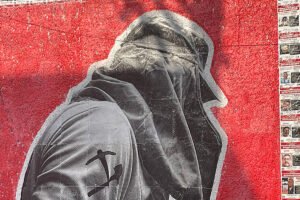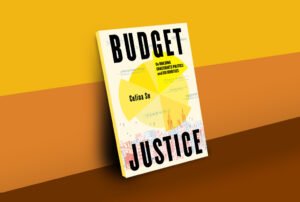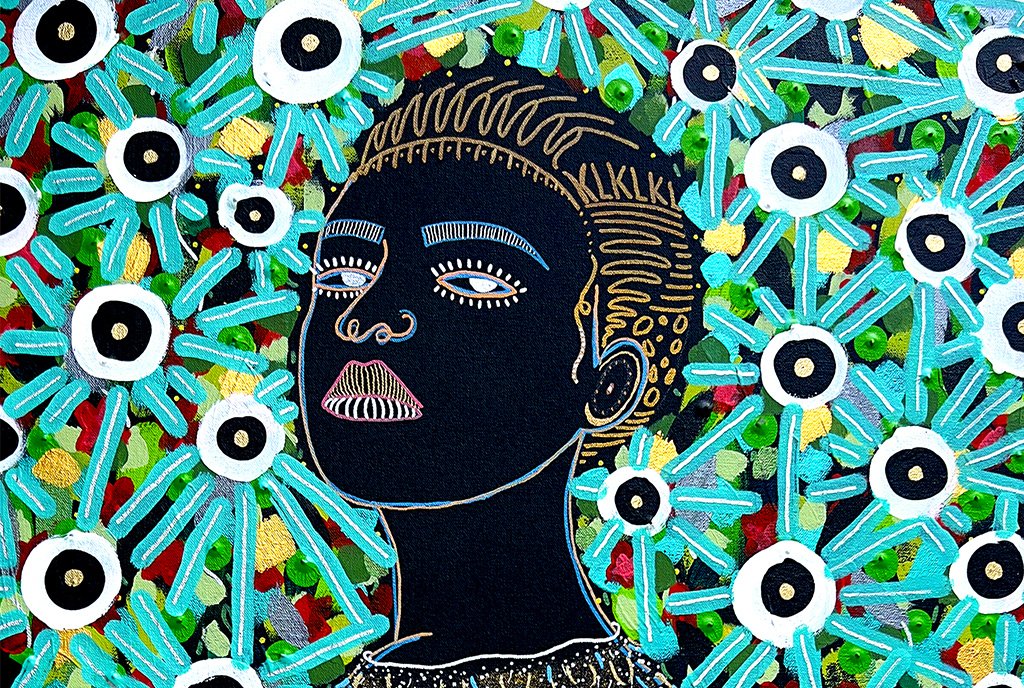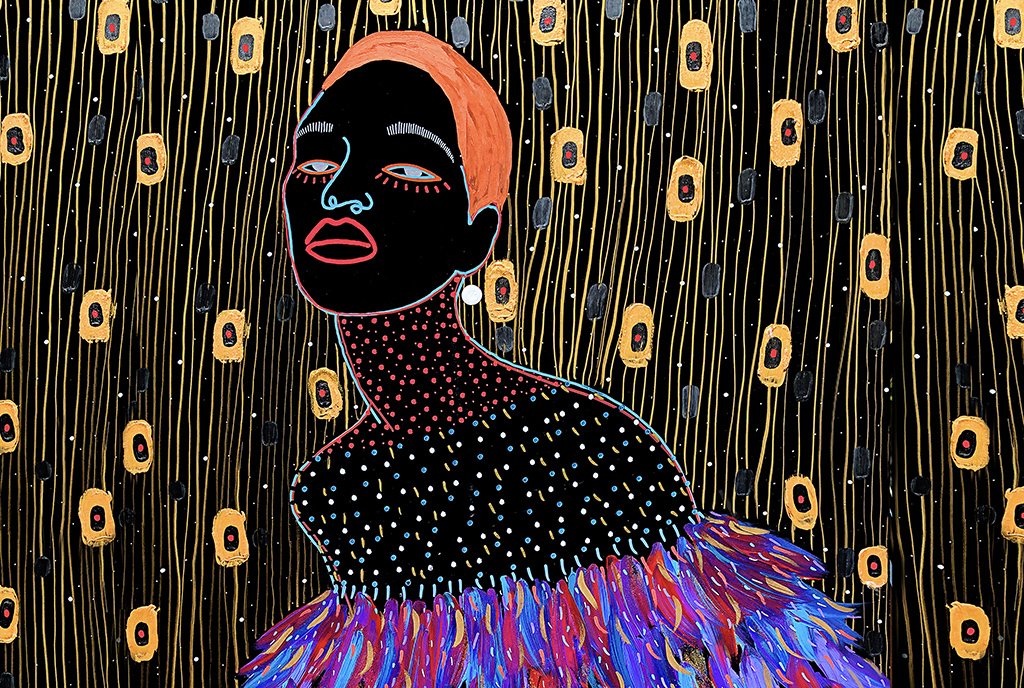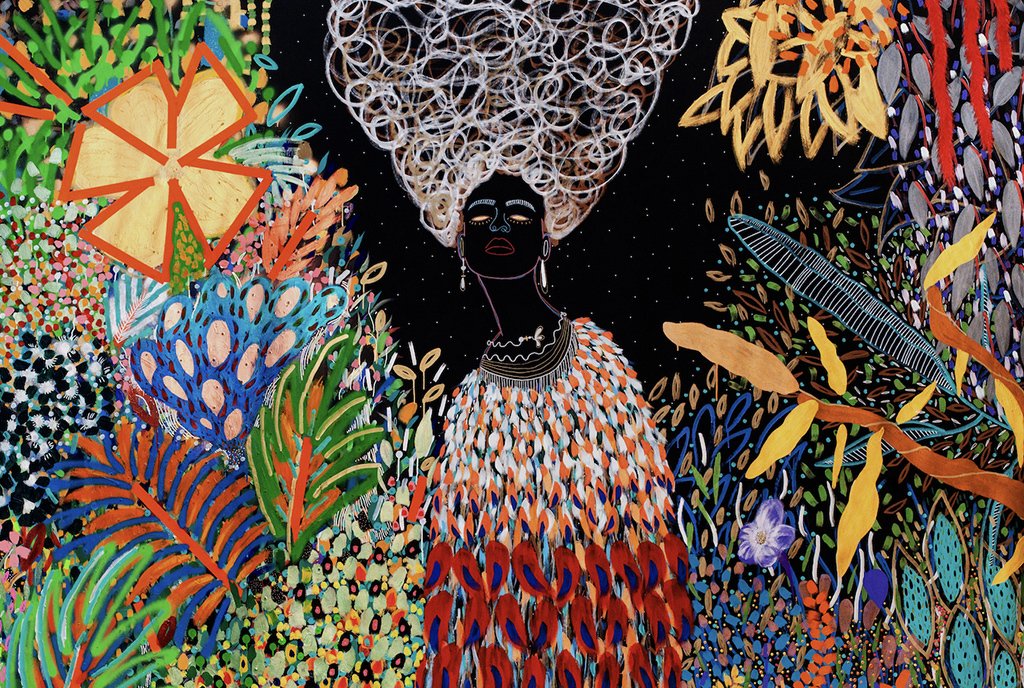
Editors’ note: This piece is from Nonprofit Quarterly Magazine’s spring 2024 issue, “‘Stop Drowning Us, and Stop Making Us Disappear’: A Critical Report on the State of Black Woman Leadership.”
I love strategy meetings. Collaboration, critical thinking, and problem solving in a group are part of what most fulfills me in my work. So I remember entering a convening space one morning really looking forward to the conversation. More than that, I was excited to be with movement leaders whom I deeply respected and admired, and with whom I had worked before. And then, a few moments later, I was pulled aside and asked not to participate, given my role as a philanthropic leader.
I felt surprised, and also disappointed. Yet I understood the disproportionate weight my opinions now held as the CEO of a foundation. My institutional and positional power meant my voice would have an outsized impact on the group and disrupt the meeting dynamics. So I observed on the periphery, instead.
It was a moment of deep reflection for me. People I had door-knocked with and planned community events with were now people with whom I was no longer able to freely engage out of fear of misusing the power of my leadership.
Stepping into my leadership role as the CEO of Kataly was the first time I had experienced positional and institutional power from the other side—and being in this position was disorienting at first. For much of my life, I have been regarded as someone without power. People see me, a Black woman, and make assumptions about my role, my expertise, and my worth. Moving through the world as a queer Black woman is both profoundly joyful and beautiful and frustrating and infuriating. It took time to adjust to the power that I now hold and the immense responsibility that comes with that power: to create a supportive and healthy work environment for our staff, to fulfill our mission in service of our grantees, to work with my colleagues in philanthropy effectively, and so much more.
Living at the intersection of multiple, marginalized identities, I have experienced harm at the hands of people in power for a long time. I can sympathize and empathize with the ways in which people are triggered by power. Out of a need to protect and defend ourselves, we respond to power based on our past experiences. But now I am beginning to understand the limitations of these defensive stances, particularly when the types of power we are engaging with are different from the traditional systems of power we’ve come up against for most of our lives.
Over and over, I return to the same question: Are social movements truly ready to engage with Black women in power? In this essay, I explore the deep challenges Black women face in our leadership, the ways in which a desire to destroy power is holding us back from the transformative changes we want to create in our society, and how we can be in relationship with power differently.
Isolation, Invisibilization, and the Expectation to Rise Above
The overt aggressions and microaggressions are bitter pills that I must constantly assess whether to swallow in order to be able to go about my day or spit out and directly confront the slights.
One of the central feelings I have experienced since stepping into a leadership role at Kataly is isolation. The institutional privilege and power of working in philanthropy and my positional power as the CEO of a hierarchical organization mean I am no longer a peer of many of the people I have worked alongside for years across social movements.
Being in my role has meant adjusting how I engage at social movement gatherings, as was the case with the convening space where I was asked not to participate. In the past, I felt a sense of belonging at these gatherings. They were where I deepened my political analysis and formed relationships that sustained me. As a philanthropic leader, these have become spaces where I need to be mindful of the weight of my words and the influence of my presence.
I find myself feeling untethered and unanchored, largely because there are so few values-aligned spaces within philanthropy for me as a Black woman leader.
My lived experience as a Black queer woman means that I experience misogynoir, a specific type of prejudice weaponized against Black women based on race and gender, on a daily basis.1 The overt aggressions and microaggressions are bitter pills that I must constantly assess whether to swallow in order to be able to go about my day or spit out and directly confront the slights—which takes significant emotional energy and time.
Many people do not recognize that they might be invisibilizing, challenging, or undermining me when we interact. The inherent challenge of being a Black woman leader with intersecting identities is that we must constantly remain vigilant and assess if the critiques we receive are legitimate based on our actions or unfounded due to anti-Blackness, sexism, or any of the other systems of oppression that shape our lives.
I contend with the expectation that I must have the capacity to rise above and lead with grace and compassion in the face of, or when engaging with, the very people who are committing microaggressions against me. As Black women, we are expected to extend care and support that are often not afforded us in return.
These are expectations that our white,2 male counterparts do not have to endure. This dynamic can best be summarized as the “Magical Negress” effect. We are both not allowed to feel pain or injustices and expected to outperform others due to our identities and lived experiences. The conundrum is that our identity is the thing that makes us vulnerable to mistreatment, and yet, because of that mistreatment, we have the added pressure to be better than others who don’t have to suffer through the same humiliation, undermining, and discrediting that we endure. And, we must ultimately do all of this in silence, behind closed doors, so as not to trigger the “Angry Black Woman” trope.
This is the landscape and context in which many Black women leaders are moving. Can we engage Black women leaders differently? How can we shift our relationship to power so that there is shared accountability and the space for Black women in power to belong to the communities we serve?
Understanding Power and Defense Mechanisms
In order to contend with Black women’s leadership and power, we must first have a comprehensive understanding of what power actually means.
Sign up for our free newsletters
Subscribe to NPQ's newsletters to have our top stories delivered directly to your inbox.
By signing up, you agree to our privacy policy and terms of use, and to receive messages from NPQ and our partners.
Power is an interpersonal, intergroup, structural, and cultural dynamic that is cocreated by those who have the power and those who are impacted by that power. Power is constantly in play as people relate to one another. Our ability to have self-awareness about how our actions and use of power impact others is critical for assessing whether we are responsibly wielding our power. And those who find themselves shaped by the power and authority of others also have a choice in how they respond to the impact of the power they experience. Being able to forthrightly communicate how a leader’s power is impacting you, positively or negatively, is a critical step in creating change in the leader. How the leader responds to your feedback will provide more information about who they are, what they value, and how they intend to lead moving forward.
How we engage with people in power and power structures is often defined by the relationships we had to power in the past. For centuries, white people in this country have held all positions of power, and the vast majority of powerful roles in our society continue to be occupied by white people. So it is only natural that we have developed particular mechanisms for contending with power that is held within the container of whiteness. Oftentimes, these mechanisms are grounded in a stance of attacking and defensiveness, out of an instinct for self-preservation. But as we contend with new systems of power and power that is held by people of color—and Black women in particular—what are we losing by constantly being in a fighting stance?
Many of us have been fighting for justice and liberation our entire lives. As fighters, we have our fists clenched, either ready to defend ourselves or ready to throw the first punch. In this fighting posture, we deny ourselves the ability to use our hands for anything else. A closed-off, defensive stance limits our capacity to identify when our movements have successfully won some positions of power that can be engaged for a collaborative, curious, and open mindset.
When we isolate leaders and reduce them to figureheads and strip them of their humanity, we miss out on the opportunity to gain insight and intelligence from what they are learning and seeing from the new vantage point of their role.
Many of us committed to social justice, antiracist, and liberation practices might not be aware of how we internalize the very same systems of oppression we are trying to dismantle out in the world. And this is because systems don’t exist outside of us. The systems are of us, because systems are designed and reinforced through the daily actions of people who uphold those systems in addition to the policies and cultural practices that perpetuate them. It is through our ability to be honest and self-aware that we can resist the internalized oppressive habits and patterns within us and make conscious choices to respond differently.
By adopting a new perspective, we can leverage newfound power to create different material outcomes for our movements and communities. If we can create spaces and identify opportunities where we can steward power with responsibility and care for those whose lives we touch, then we can begin to create a new culture of governance that forthrightly embodies accountability to our communities and care and concern for our neighbors.
Stewarding Power Together
Thinking about how to respond to, and build, power in a new way requires a transformative mindset shift in all of us. First, each of us has to acknowledge the connections we have to power, in one way or another, and therefore how we share in the responsibility of wielding that power. This can look like speaking up and contributing to the discourse, offering ideas and insights, and engaging in principled struggle and pushback when needed. And, when power has been exercised and put into action, we share in the responsibility of the resulting outcomes—good or bad. While the person with the most power to make the decisions should ultimately be accountable, everyone present is responsible.
When we isolate leaders and reduce them to figureheads and strip them of their humanity, we miss out on the opportunity to gain insight and intelligence from what they are learning and seeing from the new vantage point of their role. What should be regarded as a “win” when someone from our social movements moves into a leadership role ends up becoming a “loss,” because we lack the structures to steward power with them as opposed to leaving the burden on their shoulders to deal with.
Being in spaces with mixed levels of power requires us to act with authenticity, deep vulnerability, and integrity. And, as with most things, relationships are central to the process. Developing reciprocal and caring relationships is the best way to learn to steward power together. When we trust each other, we know we are safe to share our complex and flawed humanity. Trust creates the conditions for us to have humility, to change our opinion or assessment when presented with new information, and to provide reassurance of care and belonging when someone takes responsibility for their missteps.
The movement spaces and political homes that raised me are what made it possible for me to be in the leadership role that I’m in today. I want to be back in those spaces and engage in dialogue and critical thinking where all present—organizational leaders, grassroots organizers, community members, policy advocates, and policymakers—collectively share information from our respective roles so that we can form a grounded assessment about the state of our social movements, develop shared understanding about the conditions impacting our communities, and determine the next step of strategies that each of us is responsible for advancing. This is how we can begin to steward power together, in service of our North Star of justice and liberation.
When I imagine what it looks like to steward power together, I envision us being vulnerable with each other; I imagine acknowledging I’ve made a mistake and knowing that I will be held accountable in community rather than abandoned and punished; I imagine radical honesty, where people share their feedback with me without fear of retaliation but with investment in my growth and evolution; I imagine knowing I am respected and trusted, and responding to criticism without defensiveness.
Sometimes it is hard to believe that this vision can become a reality. I am keenly aware of how power structures that reinforce patriarchy and white supremacy have harmed me and others, yet I am inspired by the creativity and ingenuity of many of our grantee partners at Kataly—organizations like Black Organizing for Liberation and Dignity (BOLD),3 The Embodiment Institute,4 the Shelterwood Collective,5 and many others that create intentional spaces for people to come together and steward power collectively.
As frustrated and challenged as I have often felt as a Black woman in leadership, I remain hopeful. If we commit to practicing care and respect for each other with rigor and integrity, power no longer has to be only a threat—it can begin to be possibility.
Notes
- Stephen J. Lewis, “From the combination of racism and sexism, here is the story of a new word,” Northwestern Now, May 4, 2023, news.northwestern.edu/stories/2023/05/professor-coins-new-word-misogynoir/.
- Although at NPQ we fully understand and support the rationales for capitalizing one and lowercasing the other, our house style is to capitalize both “Black” and “White” as proper nouns. In the case of this article, we are lowercasing “White” at the author’s request, with respect.
- “Transforming the Practice of Black Organizers,” Black Organizing for Leadership and Dignity (BOLD), accessed March 31, 2024, boldorganizing.org/.
- “Join us in The Practice Ground,” The Embodiment Institute, accessed January 11, 2024, www. theembodimentinstitute.org/.
- Shelterwood Collective, accessed January 11, 2024, www.shelterwoodcollective.org/.





